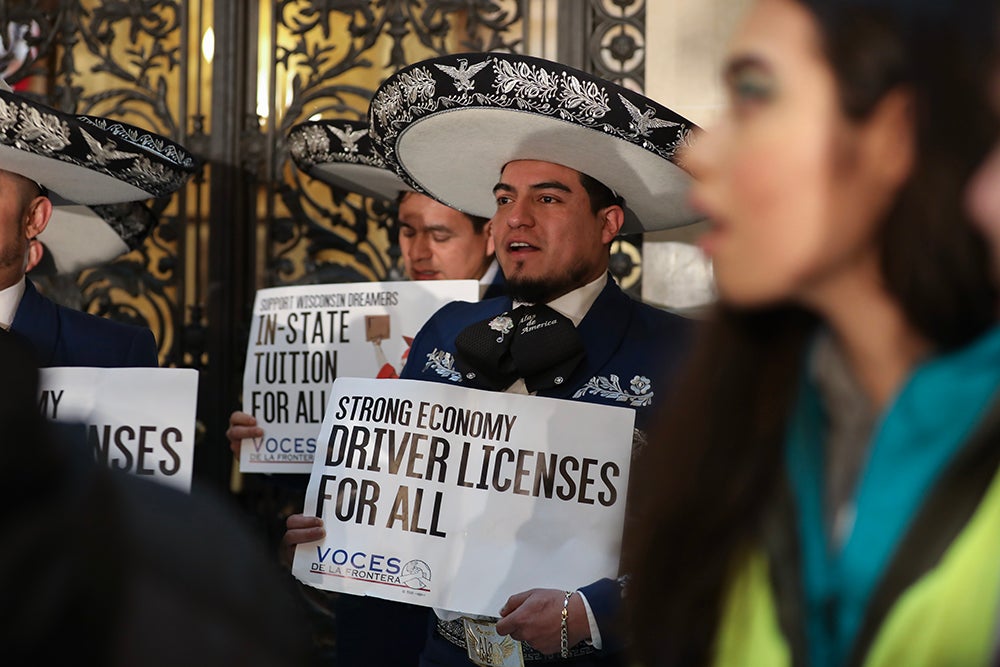The Legislature’s finance committee has approved a settlement reached with a Rhinelander auto dealer group that discriminated against American Indian customers and charged them more for illegal fees.
The Federal Trade Commission and Wisconsin Department of Justice said last week they reached a $1.1 million deal with Rhinelander Auto Center, which operates several dealerships, and Daniel Towne, who has been the general manager of those dealerships since 2016. Previous owners of the dealer group have also agreed to the settlement.
Sen. Mary Felzkowski, R-Irma, was the only lawmaker to abstain from the vote, citing a conflict of interest because her family has done business with the auto dealer.
News with a little more humanity
WPR’s “Wisconsin Today” newsletter keeps you connected to the state you love without feeling overwhelmed. No paywall. No agenda. No corporate filter.
Attorneys say the businesses illegally imposed higher borrowing costs on American Indian customers compared to their white counterparts who financed vehicles. State and federal officials say Towne and the dealerships charged consumers by adding on hundreds or thousands of dollars in illegal junk fees tied to vehicle sales without the buyers’ consent. Those charges were spread over installment payments, making it difficult for consumers to detect.
The settlement will be used to provide consumer relief and establish a fair lending program that would allow outside financing of vehicle purchases and limit interest rate charges. The deal requires the current owners and Towne to stop deceiving customers about add-on products and get their consent prior to charging additional fees.
In a statement last week, Samuel Levine, director of the FTC’s Bureau of Consumer Protection, said the comission is holding the dealerships accountable.
“A vehicle is one of the most expensive purchases families make, and we are fully committed to ensuring that all consumers navigating the car-buying process can do so without facing unlawful discrimination or paying for products and services they do not want,” Levine said.
Wisconsin Attorney General Josh Kaul said in a statement last week that companies shouldn’t be allowed “to engage in discriminatory practices or improperly charge customers.”
Current owner Rhinelander Auto Group said in a statement after announcement of the settlement that it’s committed to treating customers with dignity. The business admitted no wrongdoing under the deal, saying it agreed to the settlement to avoid “lengthy and costly litigation.”
“Rhinelander Auto Group respects all of its customers, and we are committed to treating all customers with dignity. We totally reject that our people – many of whom are long-term members of the local community – would engage in the practices alleged,” the company said. “That’s not who we are, and there is a great deal of evidence to reinforce the fact that Rhinelander Auto Group and its employees are ethical, decent, and very good people.
The complaint states that the dealerships marked up interest rates for American Indian customers between a third to a half percent more than their white counterparts. The markups cost American Indian customers roughly $400 more in additional interest payments over the term of the loan.
For illegal add-on charges, American Indian customers paid almost $1,400 more, and the disparity in payments only increased since new owners took over in 2019.
Long history of discriminatory practices against Native Americans
A 2017 survey by NPR, the Robert Wood Johnson Foundation, and Harvard T.H. Chan School of Public Health found 75 percent of 342 Native American adults said discrimination still exists today. Around 41 percent said individual prejudice is the problem while 39 percent said discrimination in government and policies are to blame.
Matthew Campbell, deputy director of the Native American Rights Fund, said there’s a history of similar types of discriminatory practices against Native people. He said that includes predatory and unlawful practices by Wells Fargo against the Navajo Nation. The company paid a $6.5 million settlement in 2019 after the Navajo Nation sued Wells Fargo.
“In 2017, the Navajo Nation sued Wells Fargo for its practices of opening unauthorized accounts for vulnerable Native people within the Navajo Nation, as part of potentially taking millions of dollars in account fees and creating fake accounts, by bank employees nationwide,” Campbell said.
Going back further, he noted the Osage Nation in Oklahoma became the target of conmen in the early 1900s as their reservation was rich in oil. The Osage retained mineral rights to those deposits and the enormous wealth that stemmed from extracting oil. The movie “Killers of the Flower Moon” that’s currently in theaters chronicles the story of white settlers plotting to steal oil rights, resulting in the murder of dozens of Osage people.
Campbell, who is an enrolled member of the Village of Gambell in Alaska, said Native Americans can be seen as easy victims. He added they often face structural barriers with higher levels of poverty, lack of internet access and difficulty accessing transportation.
“That’s an area of opportunity for someone to take advantage of our people in terms of being able to have the opportunity to obtain a vehicle at lower prices or be in a position to purchase a vehicle,” Campbell said. “It’s something that when it’s hard to travel to negotiate these types of things, it’s rife for fraud and predatory practices.”
Campbell said he’s glad the state and federal government brought the lawsuit, and he hopes it sends a message that discriminatory business practices are unacceptable.
Wisconsin Public Radio, © Copyright 2025, Board of Regents of the University of Wisconsin System and Wisconsin Educational Communications Board.





